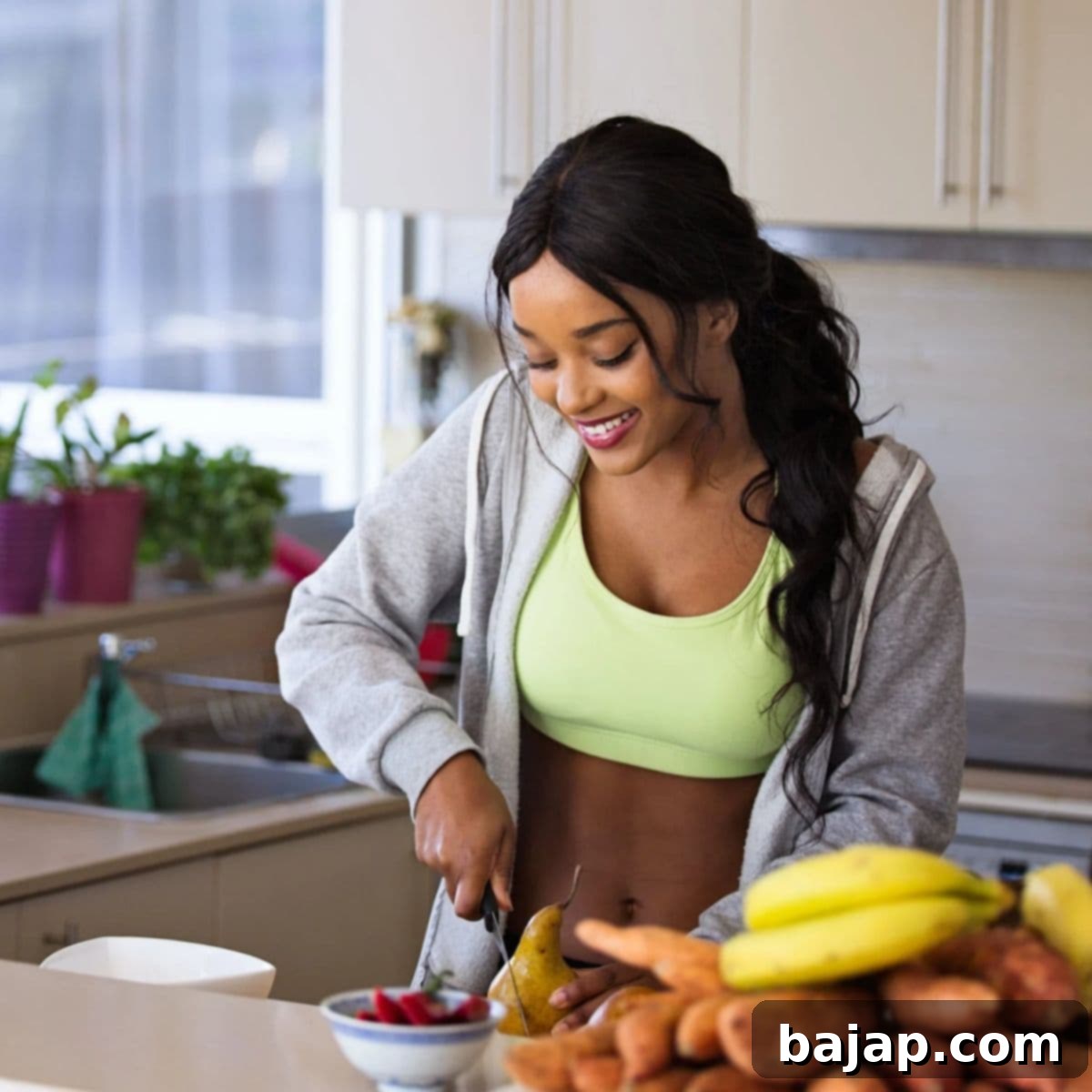Unlock Your Inner Chef: Discover the Unexpected Joys and Benefits of Cooking as a Hobby
For many, cooking feels less like an enjoyable activity and more like a daily necessity, a chore to be completed rather than a passion to be pursued. The idea of spending precious free time in the kitchen can seem daunting, especially after a long day. However, this perspective often limits us from discovering a truly rewarding pastime. What if we shifted our mindset, moving from “I have to cook” to “I get to cook”? This simple change can transform your relationship with food preparation, opening up a world of creativity, relaxation, and delicious discovery.
Embracing cooking as a hobby is a journey that promises not only delectable meals but also profound personal growth. It’s a skill that nourishes your body, stimulates your mind, and can even enrich your social life. We’re here to convince you that cooking can indeed be a magnificent hobby, provided you’re willing to give it a chance. In this comprehensive guide, we will explore the myriad reasons why cooking stands out as an exceptionally fulfilling pastime, from its meditative qualities to its capacity for adventure and pure enjoyment. Keep reading to uncover how turning on the stove can ignite a new passion within you.

🧘♀️ Cooking is Relaxing
One of the most surprising and cherished aspects of cooking, for many, is its deeply relaxing nature. Far from being a stressful endeavor, the kitchen can transform into a sanctuary, a space where the rhythm of preparation soothes the mind. The repetitive actions involved – chopping vegetables, stirring sauces, kneading dough – can be incredibly meditative. These tactile experiences allow you to focus entirely on the task at hand, creating a mindful escape from daily worries and mental clutter. It’s an opportunity to truly be present, engaging your senses with the vibrant colors of ingredients, the aromatic spices, and the comforting sounds of simmering pots.
While it’s true that sometimes things might go awry – a dish might burn, or an ingredient might be missing – these moments are not failures but rather opportunities for growth. They challenge your problem-solving skills, encouraging you to adapt, innovate, and find creative solutions before minor setbacks become major issues. Overcoming these small hurdles actually builds confidence and resilience, making the eventual triumph of a perfectly executed dish even more satisfying. Once the unexpected is handled, you can return to the tranquil calm of reading recipes, perfecting techniques, and experimenting with new flavors. For those seeking an escape, a mental detox, or a constructive way to unwind, immersing yourself in the culinary arts can be remarkably therapeutic. You’ll find yourself not thinking about anything other than what you are cooking, making it a perfect form of active meditation.
🤠 Cooking is Adventurous
Beyond its calming effects, cooking offers an exciting gateway to adventure, allowing you to branch out and explore new horizons without even leaving your kitchen. It’s an invitation to experiment with an endless array of ingredients, techniques, and global cuisines, helping you discover what truly excites your palate – and what doesn’t. The beauty of this culinary journey is that there’s no pressure to love every single dish you create. Every taste, whether a hit or a miss, is a valuable learning experience that refines your preferences and expands your culinary vocabulary.
Imagine stumbling upon a recipe that sounds utterly delicious but turns out not to be to your liking. Or, conversely, consider trying something that initially seems a little strange, perhaps an unconventional combination like this chicken Dorito casserole recipe here, only to discover it’s one of the most surprisingly delightful things you’ve ever tasted! This unpredictable nature is precisely what makes cooking so adventurous. Each new recipe is a mini-expedition, a chance to explore a different culture through its flavors, spices, and cooking methods. You’ll develop an appreciation for diverse culinary traditions and gain the confidence to step out of your comfort zone. From mastering a delicate French pastry to perfecting a robust Indian curry, the journey of culinary discovery is truly endless and infinitely rewarding.
🥳 Cooking is Fun
Ultimately, cooking is, at its heart, about having fun. It’s a delightful playground for experimentation, where your kitchen becomes a laboratory of flavors and textures. The sheer variety of ways to prepare food, from baking and roasting to simmering and sautéing, means there’s always something new to learn and try. This constant opportunity for discovery keeps the hobby fresh and engaging, preventing it from ever becoming monotonous. Moreover, cooking is an inherently social activity, offering wonderful opportunities to involve your loved ones. Sharing the joy of preparing a meal with family or friends transforms it into a bonding experience, creating lasting memories around the kitchen island.
Whether you’re hosting a dinner party, teaching a child to bake, or simply preparing a comforting meal for two, the communal aspect of cooking adds another layer of enjoyment. The laughter, the shared effort, and the anticipation of a delicious outcome all contribute to a sense of togetherness. To ensure you’re truly having fun when cooking, prioritize what brings you joy. Perhaps it’s listening to music while you chop, following a complex recipe, or improvising with whatever ingredients you have on hand. Don’t be afraid to personalize your cooking experience to ensure that you are having fun. When fun is your main focus, cooking ceases to be a chore and becomes a cherished part of your life, a creative outlet where every dish is a celebration.
🥦 The Health Benefits of Home Cooking
Beyond the joy and adventure, making cooking a regular hobby brings significant health advantages. When you prepare your own meals, you have complete control over the ingredients. This means you can choose fresh, whole foods, minimize processed components, reduce unhealthy fats, and control sugar and sodium levels. Eating home-cooked meals often leads to a more balanced diet rich in vegetables, lean proteins, and complex carbohydrates, which are crucial for overall well-being. It’s particularly beneficial for individuals with dietary restrictions or allergies, as you can easily adapt recipes to suit specific needs, avoiding hidden allergens or unwanted additives often found in pre-made foods or restaurant dishes.
Furthermore, consistent home cooking encourages mindful eating. You’re more aware of what goes into your body, which can lead to better portion control and a deeper appreciation for your food. This conscious approach to eating can contribute to maintaining a healthy weight, improving energy levels, and even boosting your immune system. By actively participating in your food preparation, you’re not just creating meals; you’re investing in your long-term health and vitality.
💰 Economic Advantages: Saving Money by Cooking
Turning cooking into a hobby can also be incredibly beneficial for your wallet. Eating out, ordering takeout, or relying on pre-packaged meals can quickly add up, becoming a significant expense in your monthly budget. By choosing to cook at home, you dramatically reduce these costs. Ingredients purchased in bulk or on sale are far more cost-effective than their restaurant or convenience store equivalents. Learning to cook means you can make delicious, restaurant-quality meals at a fraction of the price.
Meal planning is another economic superpower derived from home cooking. By planning your meals for the week, creating a shopping list, and utilizing leftovers, you minimize food waste and make the most of every ingredient. This organized approach prevents impulse purchases and ensures that you only buy what you need. Over time, the savings accumulate, freeing up funds for other hobbies, investments, or simply enhancing your quality of life. Cooking as a hobby is not just about culinary pleasure; it’s a practical skill that empowers you to manage your finances more effectively.
🧠 Skill Development Beyond the Plate
Embracing cooking as a hobby sharpens a remarkable array of skills that extend far beyond the kitchen. The act of cooking demands patience, especially when waiting for dough to rise or a stew to simmer perfectly. It hones your organizational abilities as you learn to manage multiple tasks simultaneously, from chopping vegetables to monitoring cooking times. Precision is key in baking, teaching you the importance of accurate measurements, while the creative freedom of improvisation in savory dishes cultivates your ability to adapt and innovate.
Time management becomes second nature as you coordinate different components of a meal to be ready at the same time. You’ll develop a keen eye for detail, recognizing subtle changes in texture, color, and aroma that indicate perfection. Furthermore, cooking fosters problem-solving skills, whether it’s adjusting a recipe due to a missing ingredient or salvaging a dish that didn’t quite go as planned. These transferable skills—patience, organization, time management, precision, and creativity—are invaluable in all areas of life, making cooking not just a hobby, but a comprehensive training ground for personal development.
🤝 Connection & Community Through Food
Food has always been a universal language, a means of connecting people across cultures and generations. When cooking becomes a hobby, it amplifies opportunities for connection and community. Sharing a homemade meal with friends, family, or neighbors is an intimate act of care and generosity. It fosters deeper bonds, creating moments of shared enjoyment and conversation that often revolve around the very food you’ve prepared. Hosting a dinner party, contributing a dish to a potluck, or even simply sharing a baked treat can strengthen relationships and build a sense of belonging.
Beyond personal connections, cooking can also be a gateway to cultural exploration and community engagement. Learning to prepare dishes from different parts of the world not only expands your culinary repertoire but also deepens your understanding and appreciation for diverse traditions. Participating in cooking classes, joining local food groups, or volunteering to cook for community events are all ways to meet like-minded individuals, exchange recipes, and contribute to the vibrant tapestry of your community. Through the simple act of cooking, you can nourish not just bodies, but also spirits and relationships.
Hopefully, this expanded exploration has illuminated the profound reasons why cooking is such an exceptional hobby to cultivate. It’s an activity that transcends mere sustenance, offering a rich tapestry of relaxation, adventure, fun, health benefits, economic advantages, skill development, and opportunities for connection.
The journey to becoming a confident and joyful cook is ongoing, filled with endless learning and discovery. There will always be new techniques to master, ingredients to explore, and flavors to combine. But that’s precisely what makes it so exciting and rewarding. It takes time to hone your culinary craft, and every step, every experiment, every delicious triumph, and even every minor mishap, is part of the fun. Embrace the process, be patient with yourself, and allow the magic of the kitchen to unfold.
We extend our warmest wishes to you on your culinary adventure. May you fall in love with cooking, just as countless others have, and discover the immense satisfaction that comes from creating something wonderful with your own hands.
🤎 You might also like
- Matcha Truffles – a Delicious St. Patrick’s Day Treat
- How to make a Refreshing Strawberry Spritz Cocktail
- “Easy As Pie” Strawberry Cobbler Recipe
- Patriotic Fourth of July no-bake Cheesecake
⛑️ Food Safety
- Cook to a minimum temperature of 165 °F (74 °C)
- Do not use the same utensils on cooked food, that previously touched raw meat
- Wash hands after touching raw meat
- Don’t leave food sitting out at room temperature for extended periods
- Never leave cooking food unattended
- Use oils with high smoking point to avoid harmful compounds
- Always have good ventilation when using a gas stove
For further information, check Safe Food Handling – FDA.
